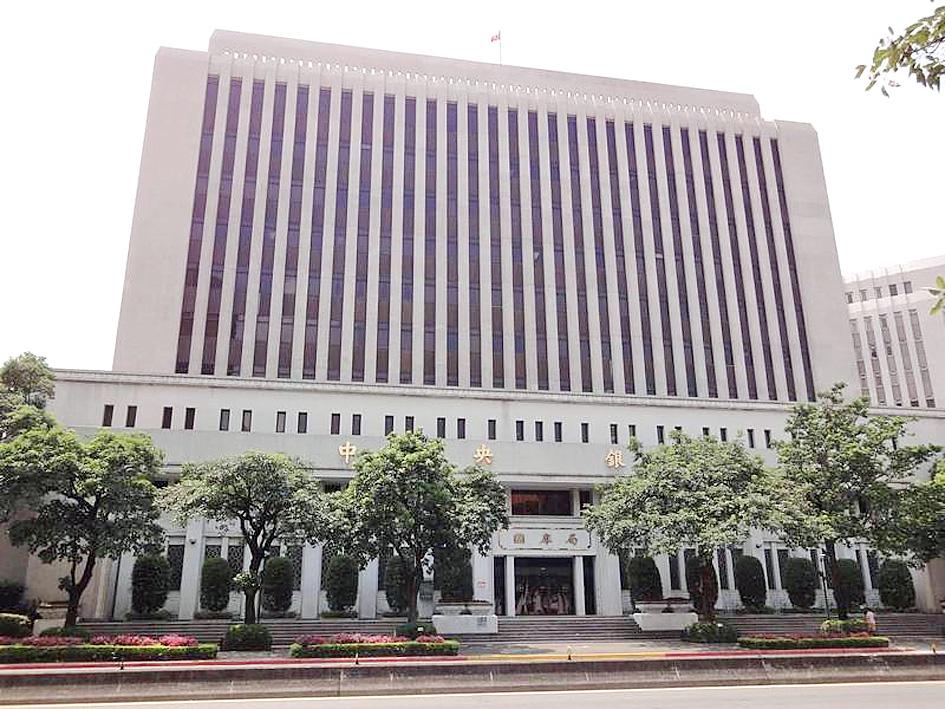Taiwan remained the fifth-largest net creditor in the world at the end of last year, as the nation’s net international investment position (NIIP) rose 0.9 percent to a new record at US$1.41 trillion, albeit slower than a 10.5 percent growth in 2020, the central bank said yesterday.
NIIP is the difference between a country’s external financial assets and its external financial liabilities.
Japan was the world’s largest net creditor with an NIIP of US$3.6 trillion, followed by Germany with US$2.7 trillion, Hong Kong with US$2.1 trillion and China with US$1.9 trillion, the central bank told a virtual news conference.

Photo: Allen Wu, Taipei Times
While Hong Kong’s NIIP stayed flat from a year earlier, Japan, Germany and China all saw their NIIPs decline last year, it said.
Taiwan’s external assets last year grew 7.9 percent year-on-year to US$2.71 trillion, as local life insurers purchased more overseas bonds and their holdings of foreign equities posted higher valuations, the central bank said.
As a result, the nation’s investment in overseas securities expanded 11.3 percent annually to US$1.2 trillion at the end of last year, it said.
Taiwan’s direct investment in overseas markets gained 10.9 percent from a year earlier to US$444.5 billion, while external assets held by the central bank edged up 3.5 percent to US$553.9 billion, it added.
The nation’s external liability last year grew 16.7 percent to US$1.3 trillion, mainly because of a 14 percent increase in direct investment by foreigners and a 23 percent increase in securities investment by foreign investors, the central bank said.
As the TAIEX last year advanced 23.7 percent — outstripping the global average of 17 percent — rising local stock prices pushed up the valuation of shares held by foreign institutional investors, which in turn boosted the nation’s external liability, the central bank said.

SEMICONDUCTORS: The German laser and plasma generator company will expand its local services as its specialized offerings support Taiwan’s semiconductor industries Trumpf SE + Co KG, a global leader in supplying laser technology and plasma generators used in chip production, is expanding its investments in Taiwan in an effort to deeply integrate into the global semiconductor supply chain in the pursuit of growth. The company, headquartered in Ditzingen, Germany, has invested significantly in a newly inaugurated regional technical center for plasma generators in Taoyuan, its latest expansion in Taiwan after being engaged in various industries for more than 25 years. The center, the first of its kind Trumpf built outside Germany, aims to serve customers from Taiwan, Japan, Southeast Asia and South Korea,

Gasoline and diesel prices at domestic fuel stations are to fall NT$0.2 per liter this week, down for a second consecutive week, CPC Corp, Taiwan (台灣中油) and Formosa Petrochemical Corp (台塑石化) announced yesterday. Effective today, gasoline prices at CPC and Formosa stations are to drop to NT$26.4, NT$27.9 and NT$29.9 per liter for 92, 95 and 98-octane unleaded gasoline respectively, the companies said in separate statements. The price of premium diesel is to fall to NT$24.8 per liter at CPC stations and NT$24.6 at Formosa pumps, they said. The price adjustments came even as international crude oil prices rose last week, as traders

Taiwan Semiconductor Manufacturing Co (TSMC, 台積電), which supplies advanced chips to Nvidia Corp and Apple Inc, yesterday reported NT$1.046 trillion (US$33.1 billion) in revenue for last quarter, driven by constantly strong demand for artificial intelligence (AI) chips, falling in the upper end of its forecast. Based on TSMC’s financial guidance, revenue would expand about 22 percent sequentially to the range from US$32.2 billion to US$33.4 billion during the final quarter of 2024, it told investors in October last year. Last year in total, revenue jumped 31.61 percent to NT$3.81 trillion, compared with NT$2.89 trillion generated in the year before, according to

PRECEDENTED TIMES: In news that surely does not shock, AI and tech exports drove a banner for exports last year as Taiwan’s economic growth experienced a flood tide Taiwan’s exports delivered a blockbuster finish to last year with last month’s shipments rising at the second-highest pace on record as demand for artificial intelligence (AI) hardware and advanced computing remained strong, the Ministry of Finance said yesterday. Exports surged 43.4 percent from a year earlier to US$62.48 billion last month, extending growth to 26 consecutive months. Imports climbed 14.9 percent to US$43.04 billion, the second-highest monthly level historically, resulting in a trade surplus of US$19.43 billion — more than double that of the year before. Department of Statistics Director-General Beatrice Tsai (蔡美娜) described the performance as “surprisingly outstanding,” forecasting export growth